The Greatest Dancer: Is there room for another dance show on TV?
- Published
Greatest Dancer judges share stories of their worst dancing injuries
The British public seem to love dancing. Or, at least, watching other people dance.
Whether it's BBC One's Strictly Come Dancing or ITV's Dancing On Ice, there's been no shortage of TV dance competitions in recent years.
So how does The Greatest Dancer - which is co-produced by Simon Cowell's company Syco Entertainment - differ from the existing ones?
"It's about people, it's not about celebrity," says Cheryl, the pop star who serves as one of the dance captains on the series.
"Both the shows you mention that are on prime time TV are brilliant, but they're based around celebrities.
"This is normal people with real talent having an opportunity to shine, and I think that's amazing."
The Greatest Dancer sees members of the public perform in front of a giant mirror in a mock dance studio.
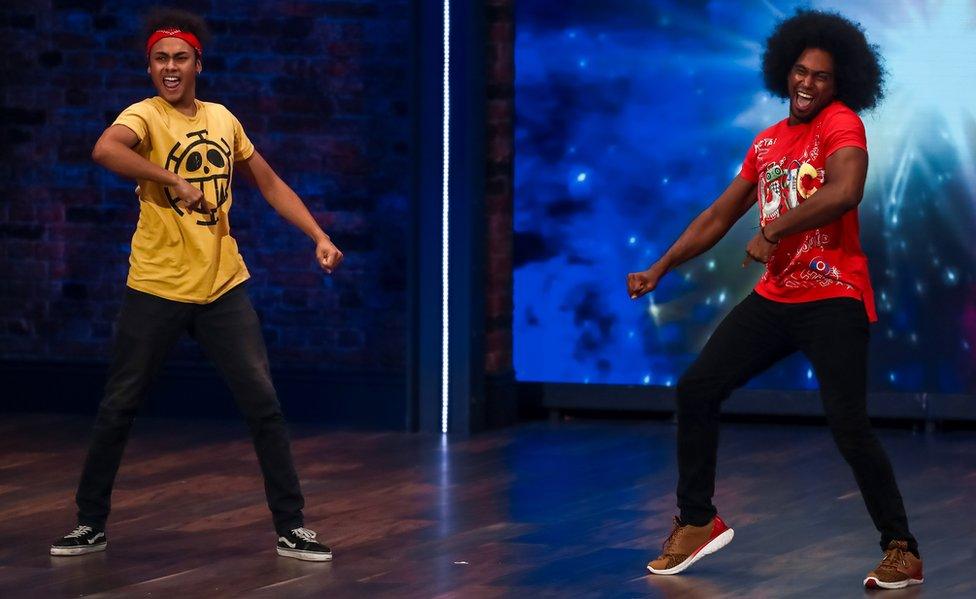
Unlike the Latin and ballroom confines of Strictly, contestants can perform whatever style of dance they like - and can do so alone, in duos or in groups.
The audience have voting keypads and if 75% or more enjoy a dance, the mirrors lift and the dance captains (judges, in other words) are revealed.
The trio - Cheryl, Strictly star Oti Mabuse and Glee actor Matthew Morrison - then give their critiques.
The eventual winners will take home £50,000 as well as the chance to perform on the next series of Strictly Come Dancing.
As a format, it has elements of both Britain's Got Talent and The Voice - two other shows in the crowded TV talent marketplace.
Is this show different enough to stand out?
"Personally, I don't think viewers are crying out for yet another competitive talent show," Frances Taylor of The Radio Times tells BBC News.
"Dancing is a well-worn path that has been trampled by many a TV commissioner over the years.
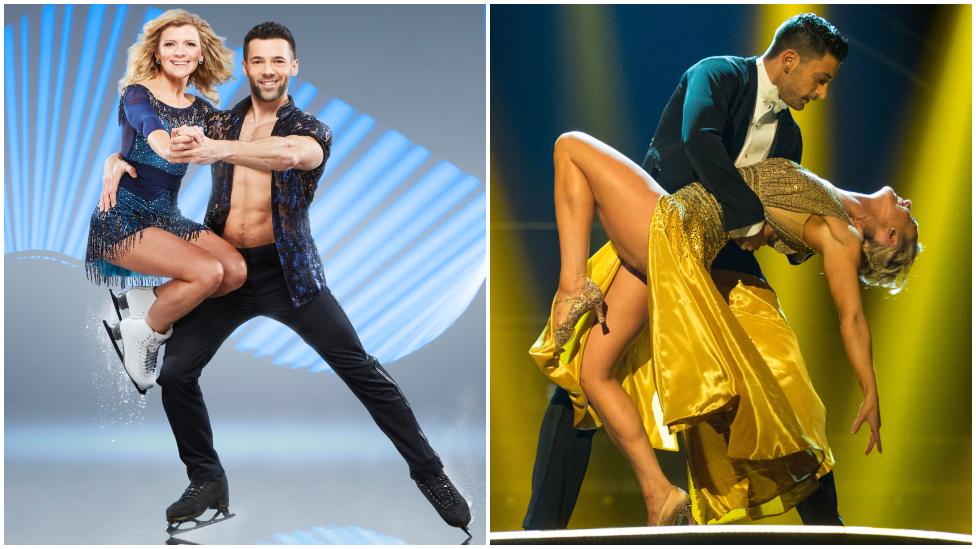
Dancing on Ice and Strictly Come Dancing remain huge TV hits
"Recent examples include Sky One's Got to Dance and So You Think You Can Dance, hosted by Cat Deeley, which aired on BBC One in 2010 and lasted all of two series.
"The popularity of Strictly and, to a lesser extent, Dancing on Ice would suggest that viewers have a healthy appetite for dance programmes. But I'm not sure this is actually the case."
The Greatest Dancer isn't the BBC's first attempt to launch a show like this - Strictly Dance Fever aired on BBC One in 2005, hosted by Graham Norton, but lasted for only two seasons.

How have other dance shows fared in the ratings?
So You Think You Can Dance averaged around four million viewers per episode for its first season in 2010, falling to three million for its second, before being cancelled by BBC One.
Sky One's Got To Dance was regularly attracting more than a million viewers by its second season in 2011, but had fallen to about half that by its fifth in 2014.
These figures are a far cry from the 11 million Strictly attracted last month, and the six million who watched last year's Dancing on Ice final on ITV.

However, The Greatest Dancer's presenters argue there's room for several dance shows on the airwaves.
"When you go into a shop, there's not just one loaf of bread," reasons Alesha Dixon, who is hosting the show alongside Jordan Banjo.
"There are so many different brands of bread, why can't you have so many different brands of dance shows? It's the same thing, you know?"
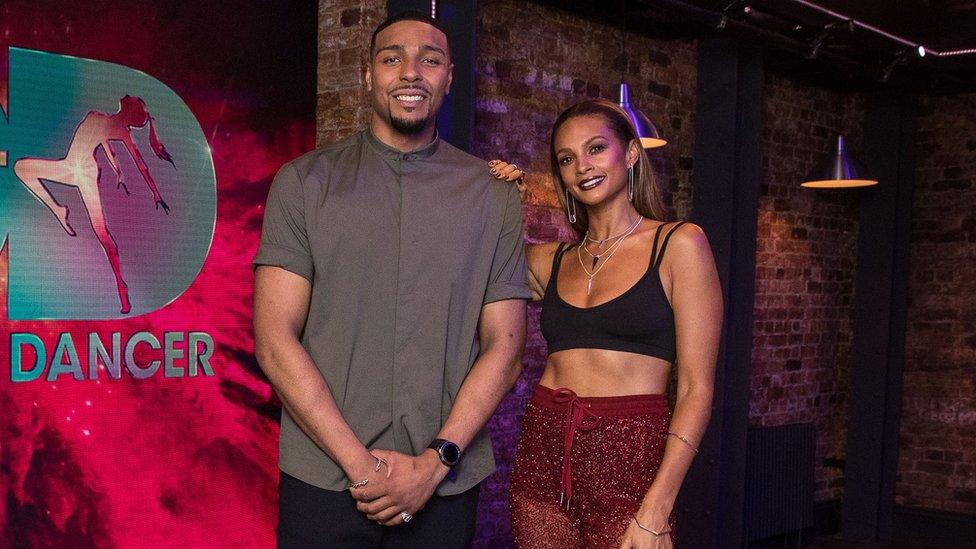
Jordan Banjo and Alesha Dixon host the show, which starts this weekend
Ahead of The Greatest Dancer's launch on Saturday, tabloid interest in the show is high.
The rumours of feuds between the two female judges inevitably began before Christmas, but were quickly extinguished by Oti, external and Cheryl.
"It's a fabricated story - yet again trying to pit female against female on a TV show. It's a shame we haven't moved past this," a representative for Cheryl said, external.
And the series has been attracting a lot of extra attention as a result of Cowell's involvement.
Indeed, the Syco logo is featured prominently in press releases for the show, and the company is credited as the creator of the format and as the co-producer with FremantleMediaUK's Thames.
But at the media launch, both the dance captains and hosts stress their lack of direct contact with him during filming.
"I think Simon's involvement is sitting at home, watching it, and going, 'I love it or I hate it, darling'," laughs Alesha, "I don't think it gets more than that really."
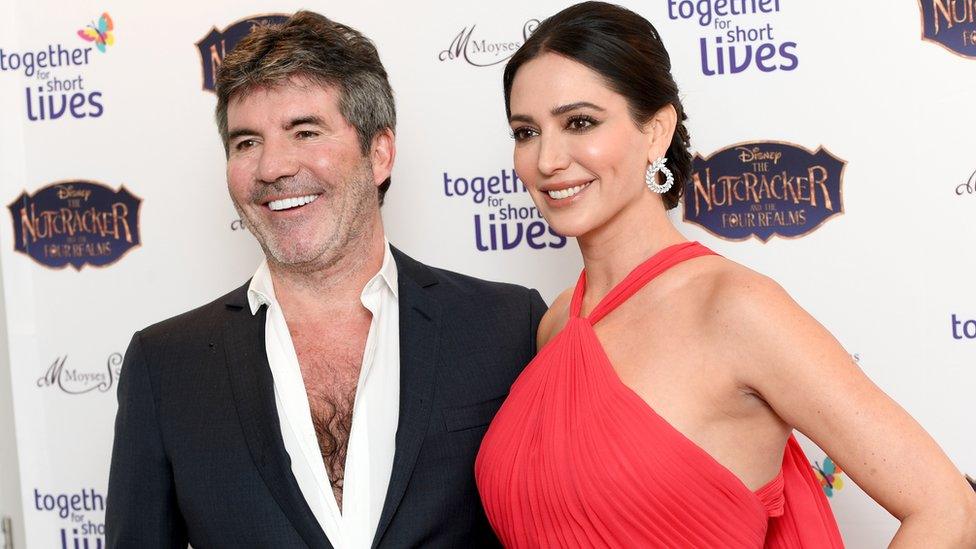
Simon Cowell (pictured with Lauren Silverman) is connected to the show via his company Syco Entertainment
So the show's stars haven't been consulting him or asking for feedback?
"I personally haven't, no, you'd have to ask the producers how involved Simon is," says Alesha.
Similarly, Cheryl jokes: "We don't need him for advice at this point, I think he would need us. I don't think he's danced a day in his life.
"Maybe he could enter! Matthew could coach him for a dance or two."
But Taylor, who has seen the opening episode, says Cowell's influence can be felt on screen in the similarities to both The X Factor and Britain's Got Talent.
"There are staged scenes of contestants getting ready at home and journeying to the studio, as well as members of the studio audience providing inane comments during the auditions," she says.
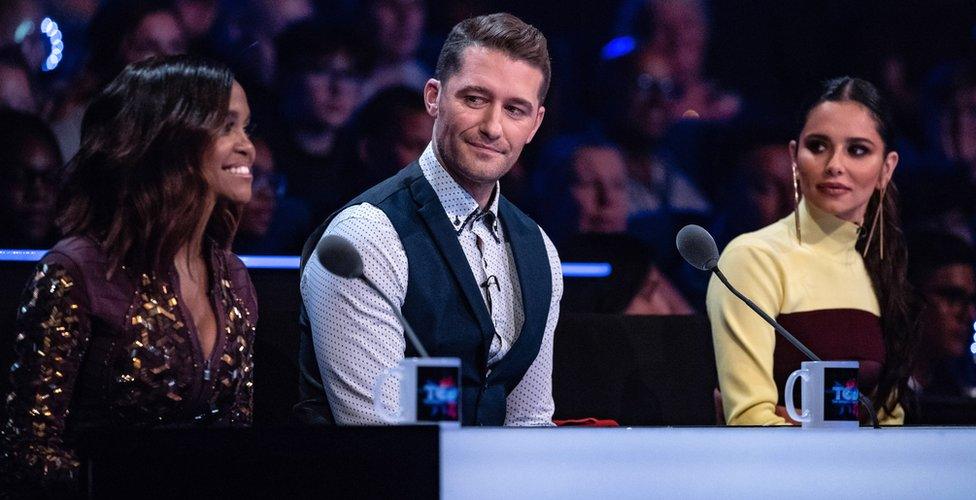
The dance captains (left-right): Oti Mabuse, Matthew Morrison and Cheryl
"Both are traits archetypal of Cowell's ITV shows - and which make The Greatest Dancer feel like a heartland ITV programme. Seeing this on the BBC is, frankly, a little bit odd.
"But as well as these tropes, being from Syco also means that The Greatest Dancer comes with a whole wealth of experience in making good television that's both slick and well-made with some amazing dancers and performers.
"Oti in particular is something of a revelation as she steps to the other side of the judging desk, and all in all it's a fun, engaging and entertaining hour of TV."
The Greatest Dancer begins on BBC One at 20:00 GMT on Saturday 5 January.
- Published17 December 2018
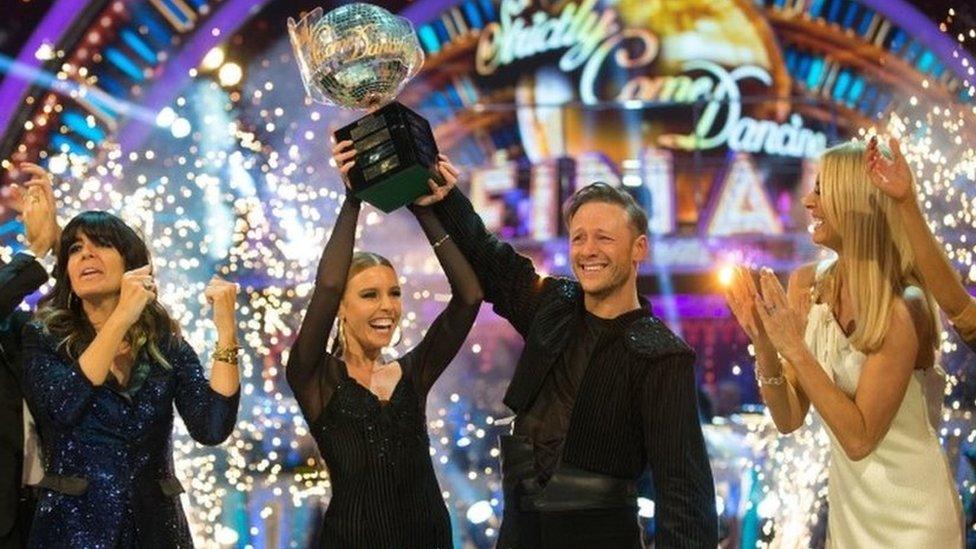
- Published2 October 2018
